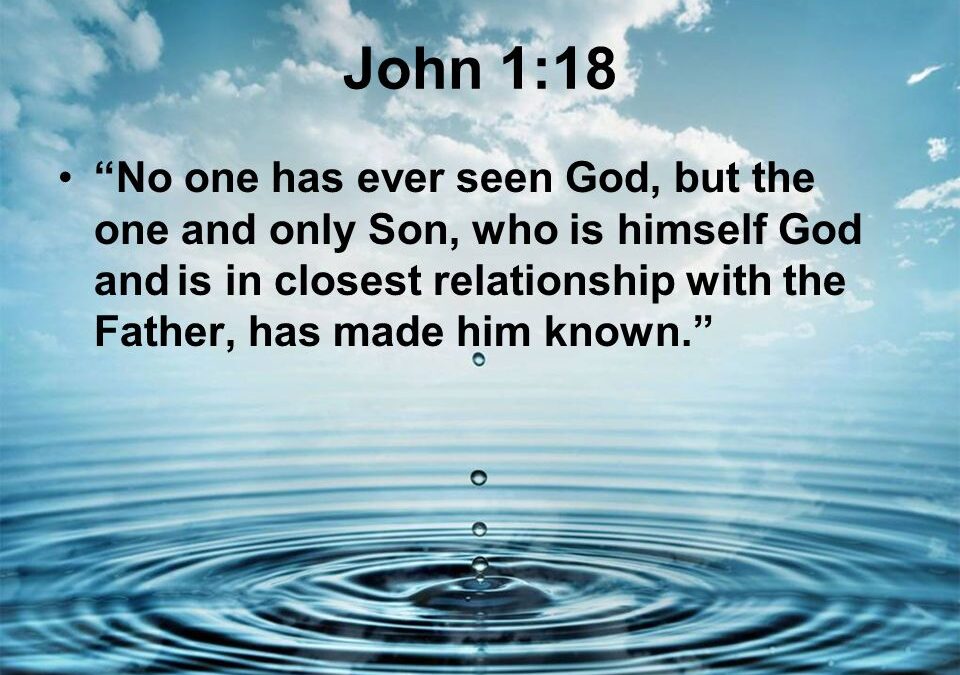In John 1:15-18, we have seen Jesus Christ introduced as the One who is before all things; the One who has fullness of grace and truth and the One who brought forth the most complete revelation of God ever given. Despite that, we often adopt alternate focal points of our faith: 1) We can actually deny Christ’s revelation by trusting in some other revelation. Perhaps that is man-made interpretations that can’t possibly be from God because they are either so unclear or they completely contradict Scripture. Additionally, instead of trusting in what Christ has revealed, we can even trust internal, subjective impressions or feelings, which cannot be verified or validated. Feelings are a gift from God, but they are fallible and can neither reveal God nor guide us in life. 2) Secondly, we can deny Christ’s revelation by coming to it while using a grid of our own personal comfort by which to determine what teachings to accept and what to reject. Sometimes we can fall into great worry about others as it relates to the truth: “If I believe this, then what will this person in my life think about me or even worse, what does it imply about that person’s spiritual state?” That is very relevant as it relates to our ministry to that person, but is someone’s response relevant at all as it relates to the certainty of the truth? Do we really think that just because we or anyone else denies a teaching of Christ that somehow that truth is no longer valid? We must never set a predetermined comfort level of accepting the teachings of Christ. He came and completely represented the Godhead in his life and teaching. Everything he did and said was exactly what the Father wanted and that which represents the Father’s will and character. Therefore, we don’t have try to improve on the revelation of Christ. God certainly doesn’t need our help to try to smooth out the truth in order to make it more acceptable to unbelievers and immature believers. 3) Thirdly and finally, we can deny Christ’s revelation by thinking that if God would just show up now in some sort of visible way, then the world would know for certain He is real and they would absolutely change their ways and follow him. Well, God did show up about 2,000 years ago and fully revealed who God is. What happened? That was too much light for such a world committed to darkness, so they murdered him. But that was always God’s plan and that relates to how Jesus Christ solved man’s dilemma of not being able to get near to God or see him. However, Jesus Christ has fully revealed God to man and Jesus Christ has brought man near to God through His sacrifice on the cross. It would thus be tremendous folly to deny the revelation of Christ by finding an alternative focal point of our faith since all things are from Him, to Him and for Him.

